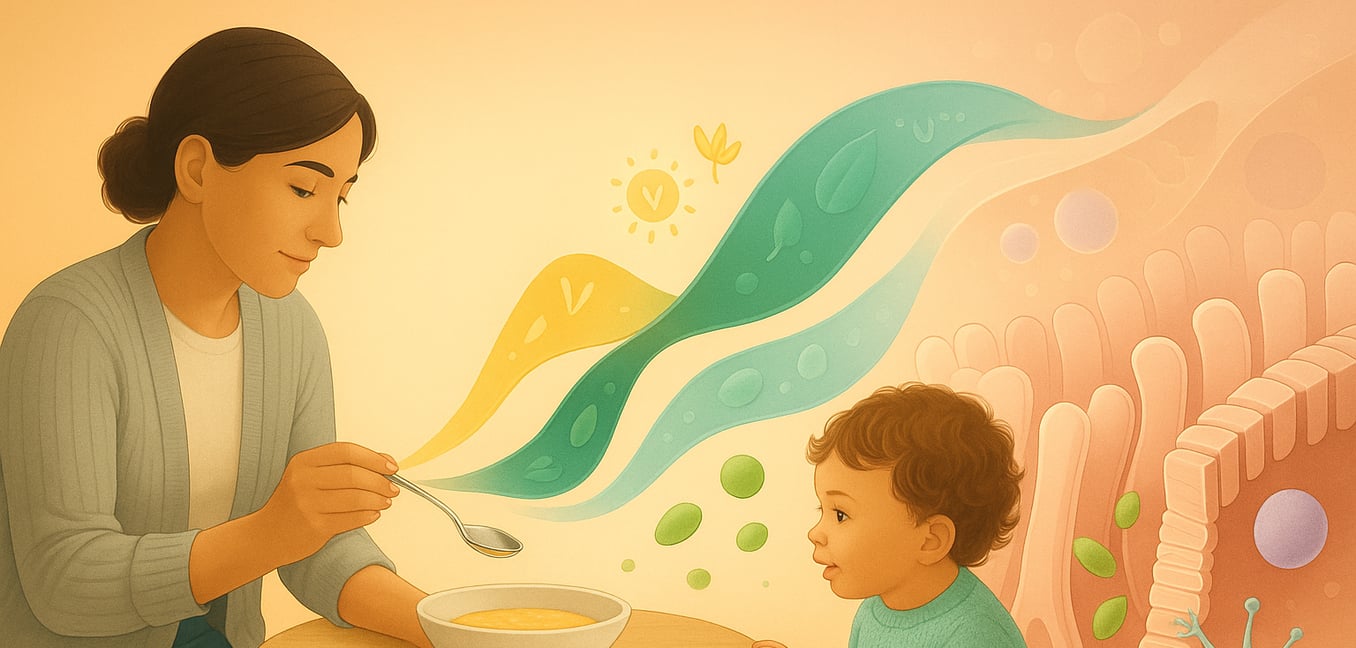A Caregiver's Guide to Nutrition During Neuroblastoma Treatment
Neuroblastoma is a solid tumor cancer that develops from early nerve cells, most commonly affecting infants and young children. As your child undergoes treatment, their body faces immense challenges, and providing the right nutrition becomes a powerful tool in their care. A well-managed diet can help your child tolerate therapy, maintain a healthy weight, and support their immune system. This guide offers practical strategies for managing eating challenges and focusing on the key nutrients that can make a meaningful difference during this difficult journey.
Why Nutrition Matters During Treatment
Navigating neuroblastoma treatment is a demanding journey for a child's body. Good nutrition is a powerful ally, providing the fuel needed to cope with therapies and support healing. A well-planned diet focuses on three primary goals:
- Helping the body tolerate treatment and repair itself.
- Maintaining a healthy weight and supporting growth.
- Bolstering the immune system to help prevent infections.
Managing Common Eating Problems
Treatment can bring on challenging side effects that make eating difficult. It is normal for a child to struggle with meals, so approach these challenges with patience and flexibility. The goal is nourishment, not a clean plate.
For Nausea and Loss of Appetite
A large plate of food can feel overwhelming when a child feels unwell. Instead, focus on small, consistent nourishment throughout the day.
- Offer small, nutrient-rich snacks or mini-meals every few hours.
- Create a "grazing station" with easy options like cheese cubes, yogurt, or crackers.
- Boost calories without adding volume by mixing butter, avocado, or powdered milk into soft foods.
- Celebrate small victories; even a few bites are a success.
To Soothe a Sore Mouth or Throat
Chemotherapy can cause painful sores that make chewing and swallowing difficult. Gentle, soft foods are key to providing comfort and nutrition.
- Focus on cool, soft foods like milkshakes, puddings, applesauce, and scrambled eggs.
- Avoid foods that can cause pain, such as anything acidic (citrus, tomatoes), spicy, salty, or crunchy.
- Serve drinks with a straw to help bypass the most painful spots in the mouth.
When Taste and Smell Changes Occur
It can be frustrating when a child's favorite foods suddenly taste metallic, bland, or unpleasant. This side effect requires experimentation to find what works.
- If food tastes bland, try adding mild flavorings like a sprinkle of sugar or gentle herbs.
- If a metallic taste is the problem, use plastic utensils and serve food cold or at room temperature.
- Keep an open dialogue with your child about what tastes good, as preferences can change daily.
Key Nutrients and Foods to Encourage
While getting your child to eat anything is a victory, focusing on nutrient-dense foods provides extra support. Think of these nutrients as specialized tools to help your child feel stronger.
Protein for Building and Repair
Protein is essential for repairing tissues damaged by treatment and for building the immune cells that fight infection.
- Good sources: Scrambled eggs, tender chicken or fish, yogurt, and cottage cheese.
- Plant-based options: Well-cooked lentils, beans, or smooth tofu.
- Easy boosts: Stir unflavored protein powder into smoothies, oatmeal, or milkshakes.
Calories for Energy
Getting enough calories is vital for preventing weight loss and fueling the hard work of healing. Healthy fats are a great way to add calories in a small volume.
- Good sources: Avocado, smooth nut butters, olive oil, and butter.
- Full-fat dairy: Whole milk, cheese, and Greek yogurt provide a combination of calories, protein, and fat.
Vitamins and Minerals for Immunity
A variety of fruits and vegetables provides antioxidants and micronutrients that support the body's defense system.
- Gentle options: Cooked and pureed foods like mashed sweet potatoes, butternut squash soup, or spinach blended into a smoothie are easier to tolerate than raw vegetables.
- Immune-supporting fruits: Berries, melons, and bananas are packed with nutrients like Vitamin C and are often well-tolerated.
When Eating Isn't Enough: Specialized Support
Sometimes, despite everyone's best efforts, a child cannot eat enough to meet their body's needs. In these common situations, your medical team may recommend specialized nutrition to ensure your child stays strong.
Tube Feeding (Enteral Nutrition)
If your child's digestive system is working but they can't eat enough, a feeding tube can deliver a special liquid formula directly to the stomach. This relieves the stress of mealtimes and guarantees they get the calories and protein needed to tolerate treatment.
Intravenous Feeding (Parenteral Nutrition)
When the digestive system needs to rest completely after surgery or during severe side effects, nutrition can be delivered directly into the bloodstream through a central line. This method, known as TPN, bypasses the gut entirely, allowing it to heal while providing complete nourishment.
Food Safety for a Weakened Immune System
Cancer treatment can weaken the immune system, making your child more vulnerable to infection. To minimize this risk, your care team will likely recommend a low-microbial diet to protect your child from foodborne illness.
- Avoid raw or undercooked foods like meat, fish, and eggs.
- Do not serve unpasteurized dairy products, juices, or raw vegetable sprouts.
- Wash all fruits and vegetables thoroughly; some may need to be cooked.
- Practice safe food handling at all times, as this is an essential part of care.










